Have you ever found yourself in choppy waters, questioning the reliability of your marine rope? The difference between a smooth sailing experience and a potentially disastrous one often comes down to the quality of your 18mm rope. As seasoned mariners know, choosing the right rope isn't just a matter of preference—it's a crucial decision that impacts safety, performance, and peace of mind on the water.
In this comprehensive guide, we'll dive deep into the world of high-quality 18mm nylon rope for marine use. We'll explore why this particular rope has become the go-to choice for discerning boat owners and compare it to its popular counterpart, 18mm polypropylene rope. Whether you're mooring your vessel, setting anchor, or preparing for a challenging tow, understanding the nuances of these ropes can make all the difference.
From strength and durability to UV resistance and shock absorption, we'll uncover the key factors that set 18mm nylon rope apart in marine applications. So, whether you're a weekend warrior or a professional mariner, buckle up and prepare to navigate the choppy waters of rope selection with confidence. Your next nautical adventure—and the safety of your crew—may depend on it.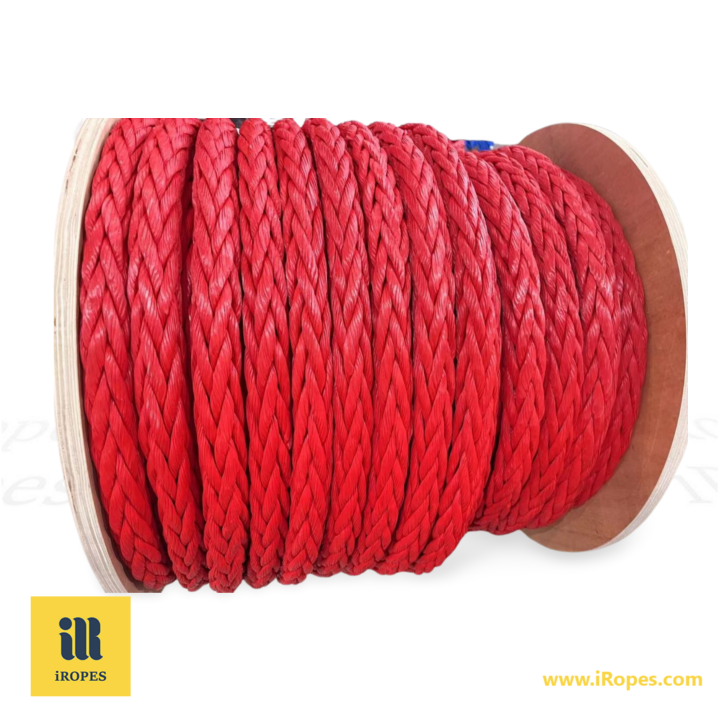
Benefits of 18mm Nylon Rope for Marine Applications
When it comes to marine applications, choosing the right rope can make all the difference between smooth sailing and potential disasters. 18mm nylon rope has become a popular choice among seasoned sailors and marine professionals alike, and for good reason. Let's dive into the remarkable benefits that make this marine-grade rope a top contender for your boating needs.
Strength and Durability in Marine Environments
As someone who's spent countless hours on the water, I can attest to the importance of having a rope you can trust. 18mm nylon rope offers exceptional tensile strength, capable of withstanding the harsh conditions of marine environments. Unlike natural fibres, nylon doesn't rot or deteriorate when exposed to saltwater, making it a reliable choice for long-term use.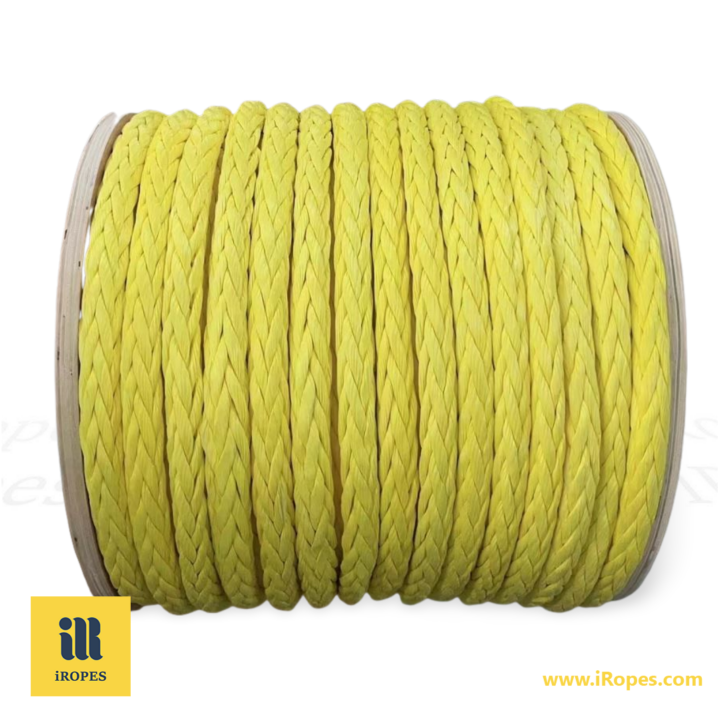
- Superior UV resistance: Nylon rope maintains its strength even after prolonged exposure to sunlight, outlasting many other synthetic options.
- Chemical resistance: It holds up well against oils, fuels, and other chemicals commonly encountered in marine settings.
- Abrasion resistance: The tough exterior of nylon rope can withstand rubbing against rough surfaces, reducing wear and tear.
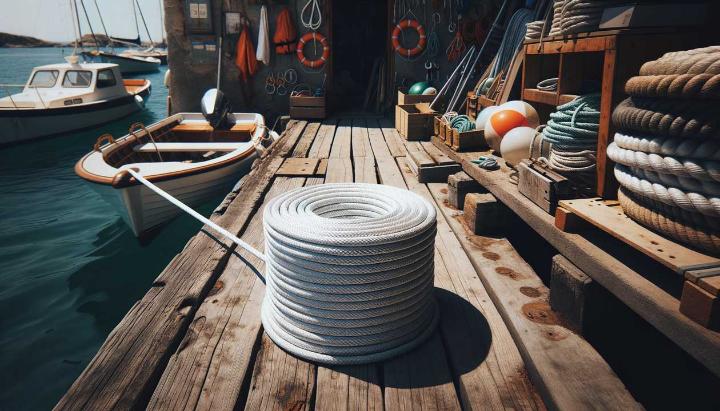
Shock Absorption and Elasticity for Boating Safety
One of the standout features of 18mm nylon rope is its impressive shock-absorbing capabilities. This elasticity is crucial for marine safety, especially in choppy waters or during sudden impacts. I remember a particularly stormy day when our mooring line was put to the test. The nylon rope's ability to stretch and absorb the shock of the waves undoubtedly prevented damage to both our boat and the dock. Read about essential tips for choosing and maintaining boat anchor ropes for your marine adventures.
This elastic property makes 18mm nylon rope ideal for:
- Mooring lines: Absorbing the shock of waves and boat movements
- Anchor rodes: Providing a cushioning effect during sudden jerks
- Towing applications: Reducing the risk of snapping under sudden loads
Have you ever experienced the peace of mind that comes with knowing your boat is secured with a reliable rope? It's a feeling every boater should have.
Pro Tip: Always inspect your 18mm nylon rope regularly for signs of wear and replace it as needed to ensure optimal performance and safety.
In conclusion, 18mm nylon rope offers a winning combination of strength, durability, and shock absorption that makes it an excellent choice for various marine applications. Whether you're mooring your vessel, setting anchor, or preparing for a tow, this marine-grade rope provides the reliability and performance you need on the water. For more insights on nylon rope, visit our ultimate guide to nylon mooring rope.
Comparing 18mm Nylon and Polypropylene Ropes
When it comes to heavy-duty marine applications, choosing between 18mm nylon and polypropylene ropes can be a bit of a head-scratcher. As someone who's spent years rigging boats and managing marine equipment, I've learned that each material has its own unique set of strengths and weaknesses. Let's dive into the nitty-gritty of these two popular rope options and help you make an informed decision for your specific needs.
Strength and Durability Differences
In my experience, the difference in strength between these two materials is quite noticeable. 18mm nylon rope typically boasts a higher tensile strength, making it the go-to choice for applications where load-bearing capacity is crucial. I remember a time when we were mooring a large yacht in choppy waters - the nylon rope's ability to absorb shock loads was truly impressive.
- Tensile strength: Nylon outperforms polypropylene, offering superior load-bearing capacity.
- Abrasion resistance: Nylon shows better resilience against wear and tear from rubbing against rough surfaces.
- UV resistance: While both materials degrade under sunlight, nylon tends to hold up better over time.
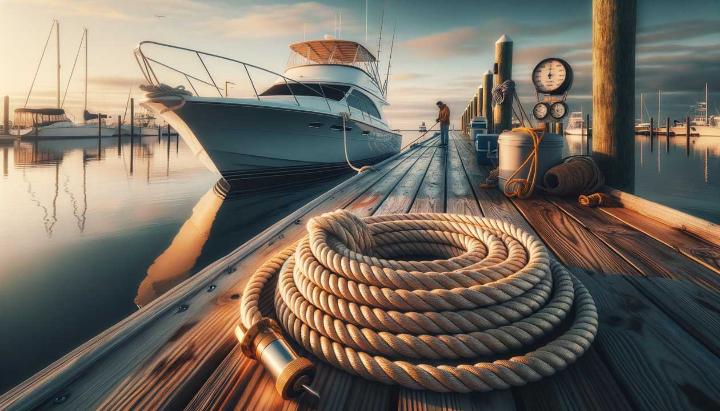
Applications and Use Cases
When it comes to specific applications, polypropylene has its own set of advantages. Its lightweight nature and buoyancy make it an excellent choice for certain marine scenarios. I've found it particularly useful for water rescue operations and temporary mooring in calm waters. You might find it interesting to know where hemp rope fits in for various applications.
- 18mm nylon rope ideal for: Heavy-duty mooring, anchoring, and towing in challenging conditions.
- 18mm polypropylene rope excels in: Floating line applications, water sports, and situations where buoyancy is beneficial.
Have you ever considered how the environment affects your rope choice? In wet conditions, nylon absorbs water and can become heavier, while polypropylene maintains its buoyancy. This can be a crucial factor depending on your specific needs.
Pro Tip: For long-term outdoor use, consider the UV resistance of your rope. While both materials degrade under sunlight, nylon typically offers better longevity in this regard.
Ultimately, the choice between 18mm nylon and polypropylene ropes boils down to your specific requirements. Consider factors like load capacity, environmental conditions, and intended use when making your decision. Remember, the right rope can make all the difference in ensuring safety and efficiency in your marine operations. Browse our collection of Nylon Rope 18mm x 200m today. Enjoy a large selection of marine supplies.
Key Factors for Selecting 18mm Marine Rope
Choosing the right 18mm rope for your marine applications is crucial for ensuring safety and performance on the water. As a seasoned sailor with years of experience, I've learned that selecting the perfect rope involves more than just picking the first option you see. Let's dive into the key factors you need to consider when choosing an 18mm marine rope that will serve you well for years to come.
This line combines several advantages of the Performance range products
with a price/performance ratio known only from polyester products. Furthermore,
it achieves optimal elongation values at the typical breaking loads
that ropes are exposed to on Performance Cruising yachts.
MATERIAL: Uhmwpe-polyester
CONSTRUCT: 12 /24 x 2
ELONGATION: 4.8%
Material and Strength Considerations
When it comes to 18mm marine ropes, the material you choose can make or break your boating experience. I remember a time when I underestimated the importance of rope material, and it nearly cost me my yacht during a storm. Since then, I've become somewhat of a rope aficionado.
- Nylon: Known for its exceptional strength and elasticity, perfect for mooring lines and anchor rodes.
- Polyester: Offers low stretch and high UV resistance, ideal for halyards and sheet lines.
- Polypropylene: Lightweight and buoyant, great for water rescue operations but less durable than nylon or polyester.
When calculating the required rope strength, a good rule of thumb is to choose a rope with a breaking strength that's at least 7-10 times your boat's weight. For an 18mm rope, this typically translates to a working load of around 3,000-4,000 kg, depending on the material.
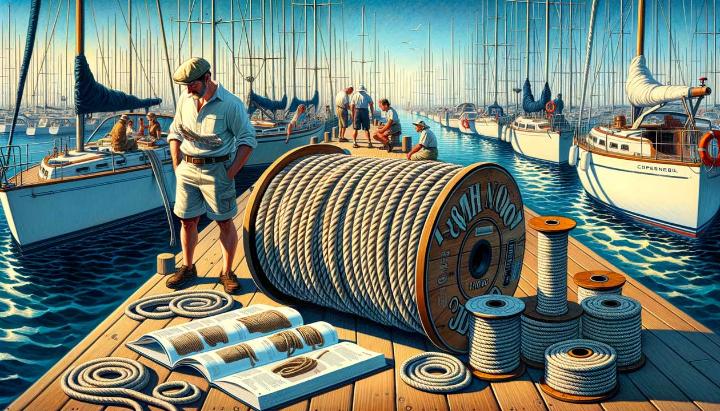
Environmental Factors and Durability
The marine environment can be unforgiving, and your 18mm rope needs to withstand various challenges. UV exposure, saltwater, and temperature fluctuations can all take their toll on your rope's integrity.
- UV resistance: Look for ropes with built-in UV inhibitors to prevent degradation from sun exposure.
- Saltwater resistance: Nylon and polyester are both excellent choices for saltwater environments.
- Temperature tolerance: Consider the climate you'll be sailing in and choose a rope that can handle extreme temperatures if necessary.
To extend the lifespan of your 18mm marine rope, proper maintenance is key. Rinse your ropes with fresh water after each use, allow them to dry completely before storage, and inspect them regularly for signs of wear or damage.
Pro Tip: When storing your 18mm marine rope, coil it loosely to prevent kinks and store it in a cool, dry place away from direct sunlight to maximise its lifespan.
Remember, investing in a high-quality 18mm marine rope is an investment in your safety and peace of mind on the water. By considering these key factors and maintaining your rope properly, you'll ensure that it serves you well for many nautical adventures to come. Additionally, you might want to know more about different industrial uses for ropes. Check out our top rope choices for sailing.
Get Your Perfect 18mm Marine Rope Solution
Choosing the right rope for marine applications is crucial, and 18mm nylon rope stands out for its strength, durability, UV and chemical resistance, and superior shock absorption. While nylon offers robust performance for heavy-duty tasks like mooring and anchoring, 18mm polypropylene rope provides a lightweight, buoyant alternative better suited for temporary mooring and water rescue operations. When selecting your 18mm rope, consider factors like breaking strength, environmental conditions, and the rope's specific use. Regular maintenance ensures longevity and performance. Explore our wide selection of high-quality 18mm rope options, including our featured 18mm Nylon Rope 18mm x 200m. The inquiry form above can help with additional details. Fill it in to discover the perfect fit for your marine needs!